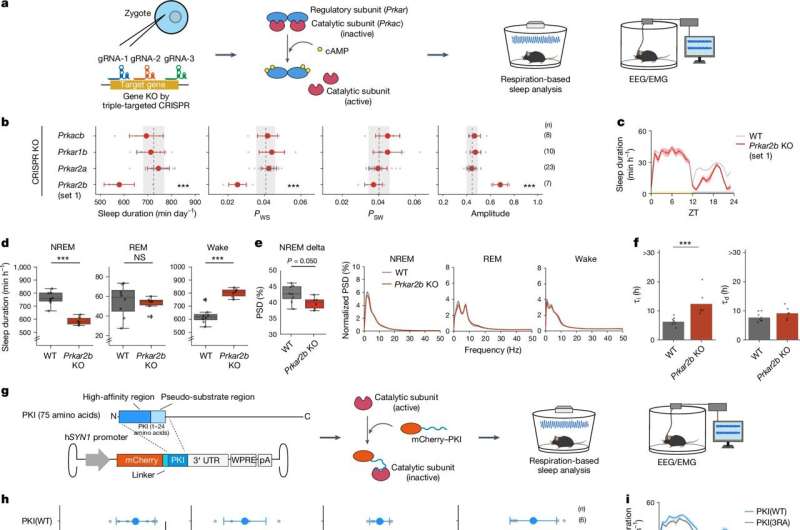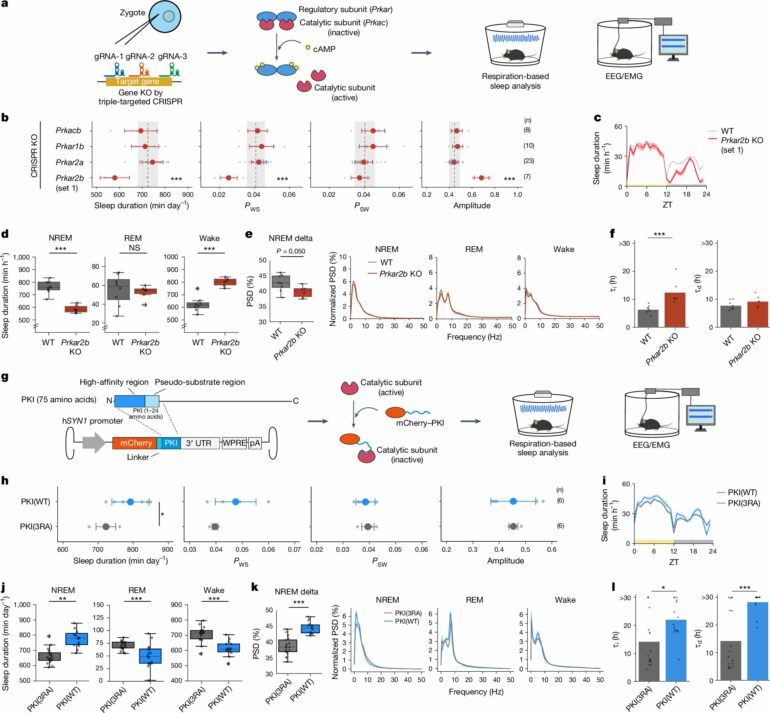Recent research has observed that chemical modifications called phosphorylation of proteins in brain neurons dynamically regulate sleep and wakefulness. But the protein kinases that suppress sleep and the dephosphorylation enzymes that control sleep and wakefulness have not been fully elucidated.
Animals, including humans, require a certain amount of sleep daily. When this sleep requirement is not met, humans experience sleep deprivation. However, the molecular mechanisms involved in sleep regulation remain unclear.
Professor Hiroki Ueda, Doctoral Student Yimeng Wang, Doctoral Student Siyu Cao, and Lecturer Koji Ode and other colleagues at the Graduate School of Medicine of the University of Tokyo, have discovered that protein kinase A (PKA) promotes wakefulness, while protein phosphatase 1 (PP1) and calcineurin, dephosphorylation enzymes, promote sleep in mammals. The study is published in Nature.
Focusing on PKA and dephosphorylation enzymes, the research group created comprehensive gene knockout mice and conducted further experiments inducing the expression of functionally modified enzymes using viral vectors. Consequently, they found that PKA activation decreased sleep duration and delta power, an indicator of sleep needs.
On the other hand, PP1 and calcineurin activation conversely increased sleep duration and delta power. In these sleep–wake promoting activities, it is essential that PKA, PP1, and calcineurin act at post-synapses responsible for information transmission between neurons.

Identification of Prkar2b as a sleep-controlling gene. © Nature (2024). DOI: 10.1038/s41586-024-08132-2
In addition, the team demonstrated that PKA and PP1/calcineurin may work competitively to regulate daily sleep duration.
This study has revealed that the balance between sleep and wakefulness is regulated by the action of multiple enzymes, which is an important finding for controlling sleep duration and sleepiness on a molecular level.
The study was part of the Ueda Biological Timing Project, a research area of the Exploratory Research for Advanced Technology (ERATO) by the Japan Science and Technology Agency (JST). Under this project, JST is developing “systems biology for understanding humans” using sleep-wake rhythms as a model system in this project, aiming to understand “biological time” information that runs from molecules to individual humans living in society.
More information:
Yimeng Wang et al, Postsynaptic competition between calcineurin and PKA regulates mammalian sleep–wake cycles, Nature (2024). DOI: 10.1038/s41586-024-08132-2
Provided by
Japan Science and Technology Agency
Citation:
Enzyme study sheds light on the molecular mechanism behind ‘sleepiness’ (2024, December 3)



